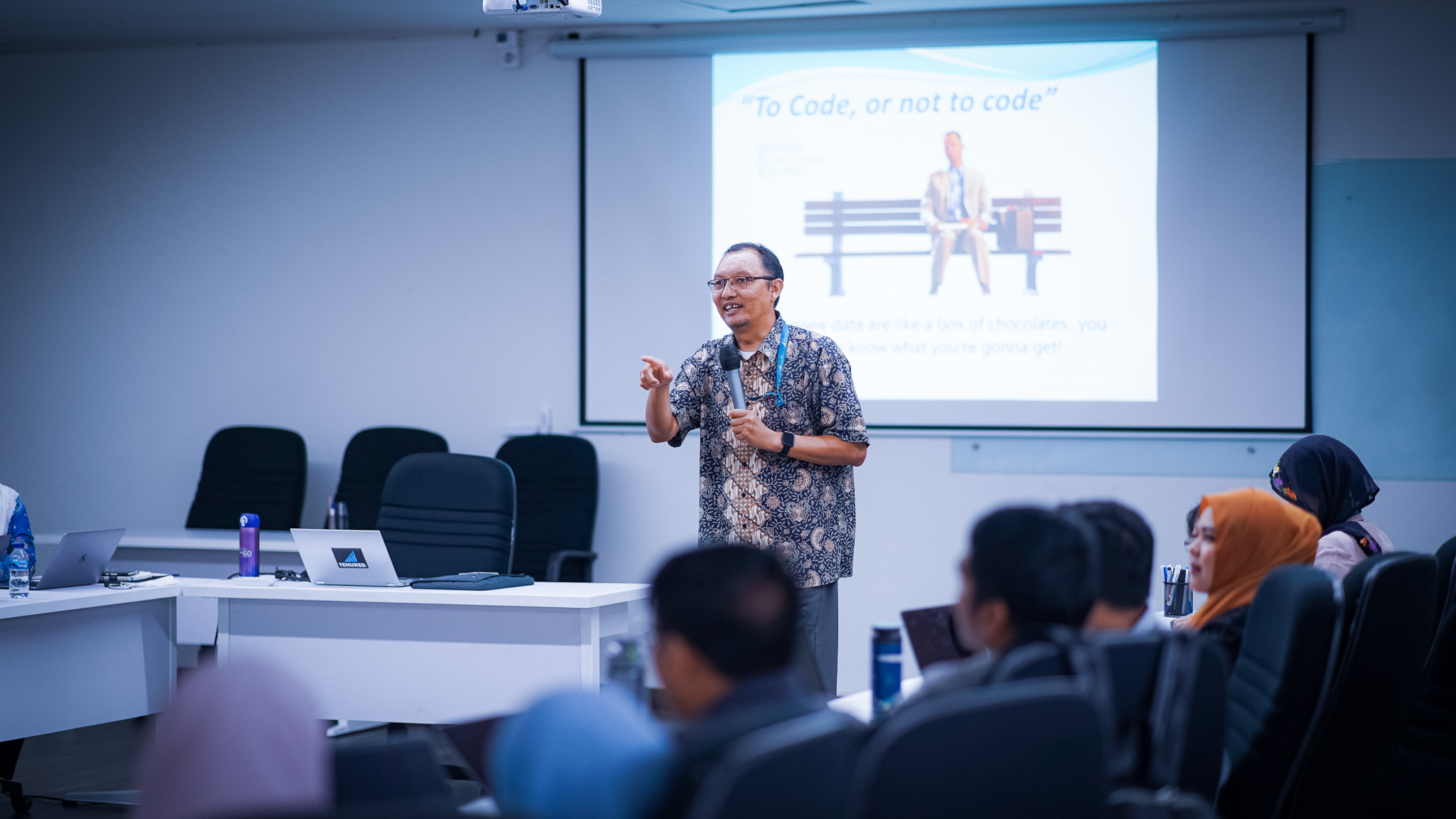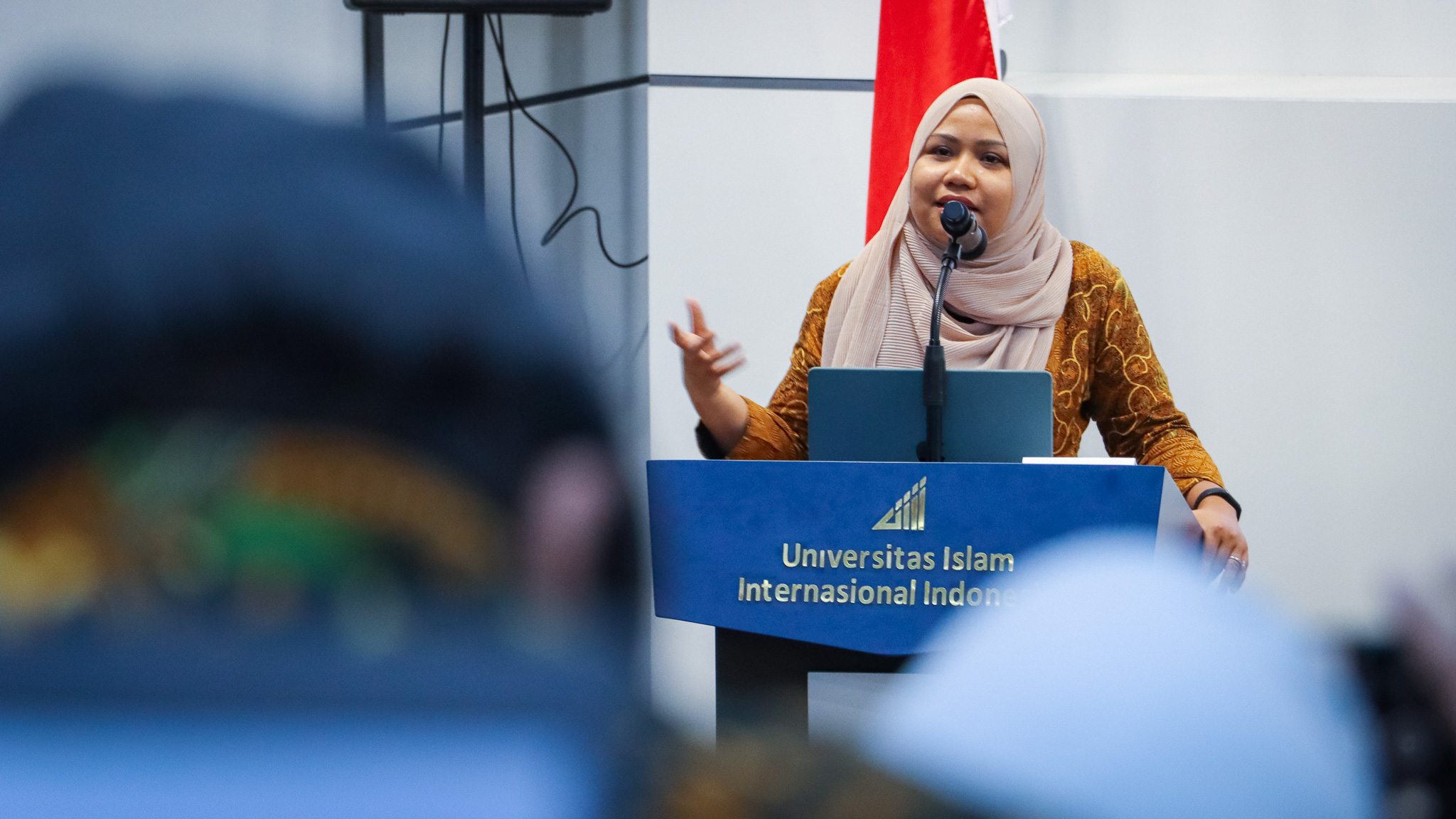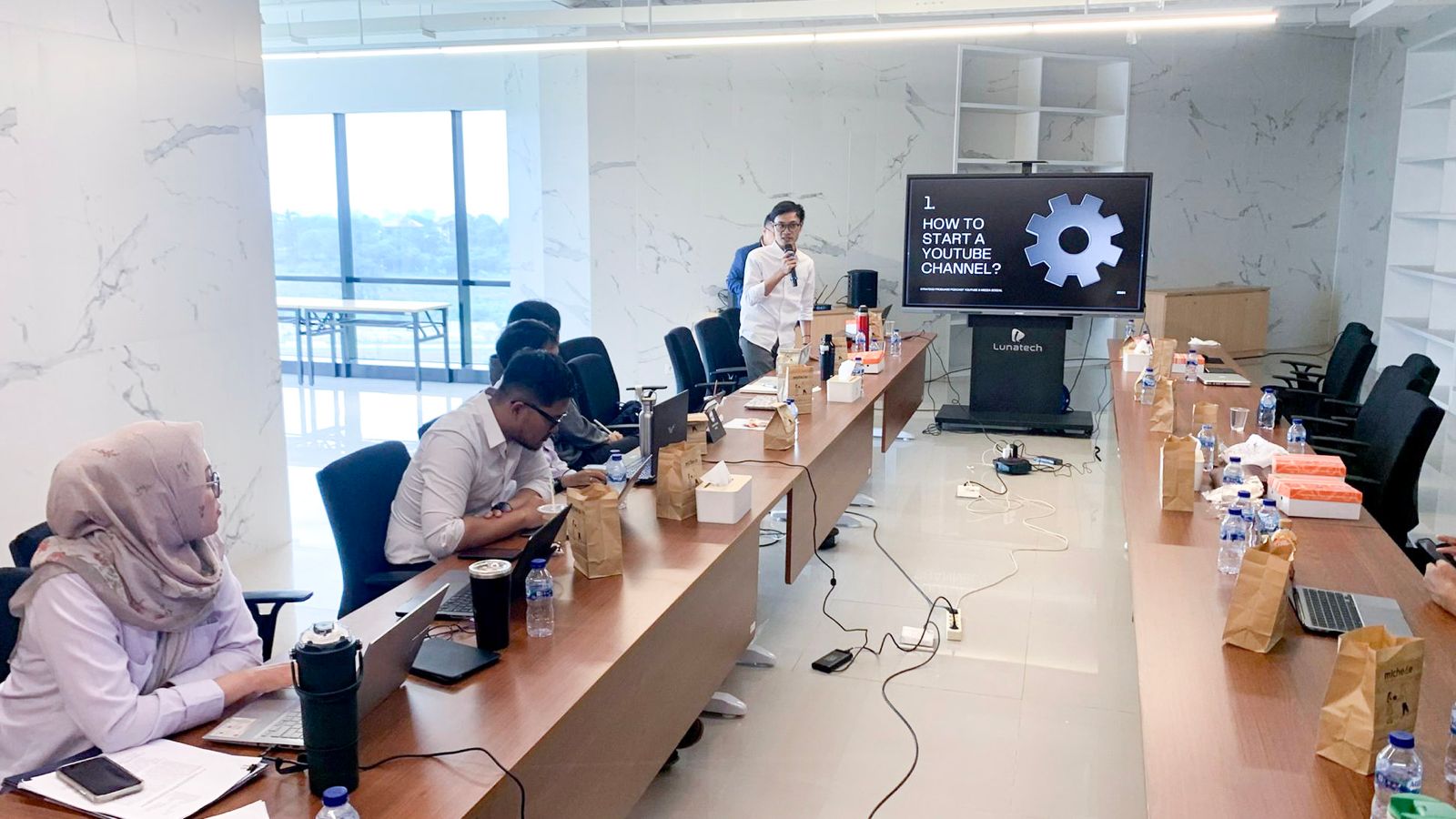FoE Holds Software-Based Qualitative Data Analysis Workshop
March 03, 2023Contributor: Maroof Ahmed | Editor: Supriyono

As part of its effort to produce research-competent graduates, the Faculty of Education (FoE) at the Universitas Islam Internasional Indonesia (UIII) holds on March 1-3, 2023, a three-day workshop themed ‘Qualitative Analysis with Software’ delivered by Dr. Bambang Sumintono as the head of program in Ph.D. in Education.
Derived from the fact that most qualitative analysis is conducted manually—at least in the Indonesian context, the faculty seeks to equip the students with skills that could ease them in doing research, whilst also highlighting the importance of making use of technology in producing academic works.
Primarily targeted to the fourth-semester students who are currently completing their master’s thesis, the workshop saw a sizeable crowd of around forty-five participants hailing not only students, but also researchers, and faculty members at UIII.
"Managing a lot of data is sometimes overwhelming for students. So, it needs certain tools that could help them ease [the process]" Dr. Bambang said, highlighting the importance of using software to manage and retrieve data, as it could make the process of coding and analyzing the data easier, faster, and more efficient.
In Indonesia, qualitative data analysis is a commonly used approach in the field of education. However, Dr. Bambang pointed out that the kind of software used for qualitative analysis remains complicated to carry out. Thus, the workshop is projected to equip students, researchers, and faculty members with the necessary skills to manage and analyze qualitative data using the Quirkos software.
"Learning how to use Quirkos will help a lot in terms of managing the [qualitative] data, identifying the coding, finding the pattern, and doing the analysis. [Also] It will help a lot in terms of doing interpretive analysis", Dr. Bambang told the UIII’s media team.
Aiming to be a research-based university, UIII currently offers MA and Ph.D. programs for both local and international students at four different faculties namely Islamic Studies, Social Sciences, Business and Economics, and Education.
- Grit, Innovation, and Adaptation: Key Themes in FoE’s 3rd Graduate Forum for Education Future
- Student-Led Research Community Series Kick Off with Academic Publishing Session
- Advancing Institutional Governance through Risk Management Training
- A Night of Unity: International Iftar Brings Students Together in Celebration
- Vice Minister Joins Iftar with UIII International Students, Hearing Their Stories
- FisFastFest Showcases ‘TransformMe’ Spirit with Intense Quiz Competition
- Ramadan Unites Us: UIII Hosts Iftar Gathering to Strengthen Bonds
- It’s Time for Africa! UIII Aims to Expand Outreach in African Continent
- Future Innovators Gather at UIII for 1000x Challenge Mentoring & Briefing
- UIII and Al-Azhar Strengthen Ties for the Advancement of Islamic Civilization


